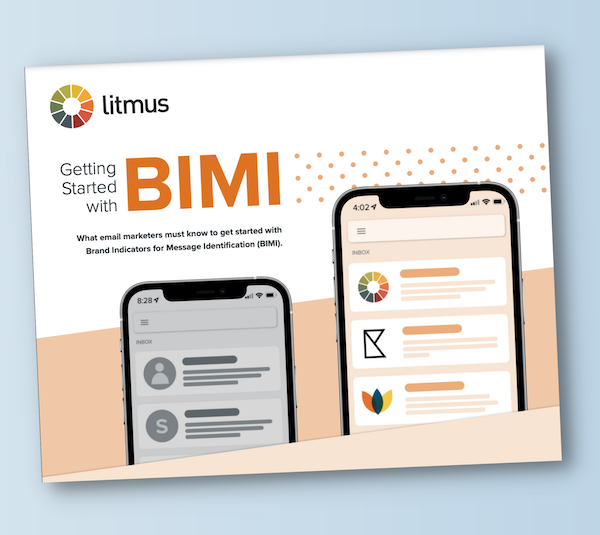Top 5 Priorities for Successful Email Marketing Programs
Email remains a top-performing marketing channel with 78% of marketers continuing to see an increase in email engagement. Audiences still love email because it allows brands to communicate with them on their preferred channel in a personalized way.
As email marketing strategies continue to evolve, it’s important to focus on key areas that will help grow your business — and your subscriber’s loyalty.
We have outlined the top five priorities for successful email marketing programs to help create consistency and conversions.
Email deliverability
Email deliverability helps you measure how often your emails are landing in the inbox instead of being labeled as spam. Low deliverability, specifically a systematic deliverability issue, has a ripple effect. It can impact your branding, engagement rates, and ultimately, your ROI—which has much larger implications for your business.
Several factors affect an email marketing campaign’s likelihood of being successfully delivered. Keep an eye on these key areas to ensure your email campaigns don’t endure any unsuspected detours.
- Create a pre-send checklist
- Mistakes are inevitable. However, with tools to check, and double-check your work, they are far less likely to occur. Testing every email campaign before every send can help eliminate errors and increase brand credibility.
- Test spam filters
- Spam filter testing tools can give you visibility on any potential spam hurdles your email marketing campaign may face — before they become a problem. Brands that use spam testing tools also report a higher ROI of $51 for every $1 spent.
- Conduct an email deliverability audit
- An email deliverability audit analyzes any necessary changes needed to improve deliverability performance. Monitoring things like sender reputation, format and content, and list hygiene can help highlight where to focus your efforts for improvement.
Personalization
Email personalization is here to stay. Subscribers expect it and it’s good for business. In fact, 80% of customers say they are more likely to make a purchase from a brand that provides personalized experiences.
Email subscribers like receiving personalized messages that make them feel like a business really knows them. By incorporating dynamic email content based on each person’s preferences, on-site behaviors, or past purchases, you improve engagement, build loyalty and ultimately, increase revenue. It’s so powerful that 99% of marketers say personalization helps advance customer relationships.
Personalization also helps you learn more about your ideal audience to optimize your marketing efforts across channels and platforms. Since email works at all stages of the customer funnel, it’s an ideal way to gather information to complement your omnichannel strategy.
Email automation
According to our 2021 State of Email report, about 59% of marketers have made expanding automation a priority for their email marketing. Email automation tools help maximize productivity, identify inefficiencies, and create opportunities for more conversions — a win all around.
Another perk to automation? You can apply segmentation and personalization to your email marketing strategy at scale. This improves your subscriber’s experience by giving them the content they want at the right time.
Email automation is also great for re-engagement or abandonment campaigns. Implementing automation to reach back out to subscribers could be the nudge they need to take action. It also lets you nurture the customer relationship organically while gaining more data for each customer profile to improve future communications.
Brand Indicators for Message Identification (BIMI)
As data privacy regulations continue to impact how email marketers reach their audiences, gaining subscriber trust is increasingly important. Implementing Brand Indicators for Message Identification (BIMI for short) can help you stand out in the inbox.
By displaying a sender logo alongside your message, you boost brand visibility and trust — and quickly. This will show subscribers your brand information has been verified and your email isn’t spam.
Most major ESPs support BIMI, and more are likely to in the future, as businesses privacy-proof their email programs. BIMI also helps improve email deliverability by authenticating your email to get it to the inbox faster.
Data hygiene
Your email marketing efforts are only as good as the data you have available. While flawless CRM data is unrealistic, you can work toward clean data that will drive your business and create more opportunities. Regular data cleansing results in higher email engagement, better deliverability, and ultimately, increased ROI.
Before you can put measures in place, you need to identify:
- What types of data you have available
- What additional information you need to collect
- How your data is structured
- What unnecessary details can be purged
It’s best to start with the basics and work your way through. Before you can add any layers of sophistication to your email marketing strategy, you need to get your data in order to segment and personalize your messaging.
Keeping up with what works, and what doesn’t, in email marketing can sometimes feel like trying to hit a moving target. However, by listening to what your subscribers want and finding the best way to meet their needs at every stage of the consumer journey, you’ll position yourself for success and loyalty that will last long after your next email marketing campaign.

| Want to get BIMI up and running for your own emails? Check out our guide to getting started with BIMI up and running—and start creating a better experience for your subscribers today. |

Maria Coleman
Maria Coleman was a Senior Content Marketing Manager at Litmus
